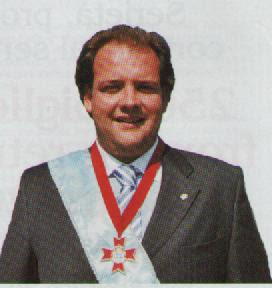 |
| Seborga - from the Seborga Homepage |
However, while its claim to independence might only be through the oversight of 19th Century moustachioed diplomats, Seborga achieved its freedom in a most flamboyant fashion: a revolution in 1963 led by the head of the local flower-growers cooperative, Giorgio Carbone. That's right, a rebellious, left-leaning rose farmer.
Like all good socialists, once victorious and voted into power by the people of Seborga, Giorgio immediately declared himself Giorgio I, Prince of Seborga. To be fair, he did put his leadership to the people again a short 28 years later, and was voted in through a referendum - winning 304 to 4. Those 4 people must really hate flower-growers.
Best of all, Giorgio's title until his death in 2009 was "Sua Tremendita" or "Your Tremendousness". Me, I would have gone for "Your Most Bodaciousness".
Seborga's new ruler is now Prince Mengatto I, who won a close fought election against his rival Pepi Morgia, by 89 votes to 67. Worryingly, only 156 of the 220 eligible voters turned out, suggesting that the Seborgan electorate is rapidly growing disillusioned with modern politics, or that the joke has got a bit boring by now.
 |
| Prince Mengatto I: Most Awesome Medal, Dude! |
As the Daily Telegraph noted in a report on the statelet, relations are not entirely harmonious:
However, the residents do pay taxes to Italy, and vote in Italy's general and regional elections. Sceptical Italians have accused Seborga's independence of being a ruse to attract tourists.I find such besmirching of His Tremendousness highly upsetting.



No comments:
Post a Comment